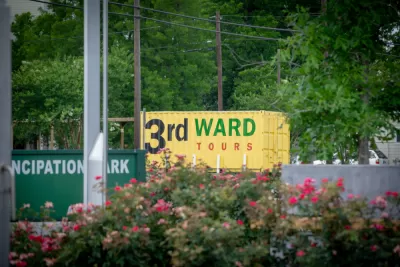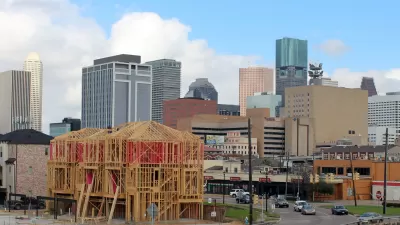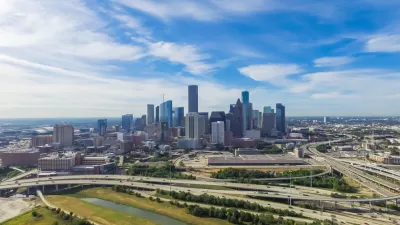These Houston communities have experienced the most dramatic demographic changes in the last decade, according to new Census data.

As the results of the 2020 Census begin to tell stories about the current state of U.S. cities, Monique Welch walks us through some of the Houston neighborhoods seeing the most dramatic demographic changes. "Recent Census data released earlier this month reveals how drastically the demographics of some of these neighborhoods have changed between 2010 and 2020."
Among these neighborhoods is Third Ward, the center of Houston's Civil Rights movement in the 1960s. There, "the Black population has dropped from 71 percent in 2010 to 45 percent today." This is in large part attributed to the "arrival of Highway 288, which razed many Black-owned homes."
Fifth Ward, the home of Houston's blues and jazz scene, has seen the loss of historic Black clubs and music venues as property values rise and new residents and businesses move in. Acres Homes, in a semi-rural area of North Houston, has seen an increase in Latino residents. Second Ward, meanwhile, saw its Latino population drop by around 25 percent between 2010 and 2020.
The article also mentions Clayton Homes, a Houston Housing Authority project that faces the threat of demolition "if current plans for the redevelopment of Interstate 45 proceed as planned." Other residents and businesses, such as Armando Lichtenberger, Jr. and his Grammy-winning band La Mafia, will also have their property seized and face displacement if the I-45 plans go through.
FULL STORY: These Houston neighborhoods are changing through gentrification. Here's a look at their past and present.

Maui's Vacation Rental Debate Turns Ugly
Verbal attacks, misinformation campaigns and fistfights plague a high-stakes debate to convert thousands of vacation rentals into long-term housing.

Planetizen Federal Action Tracker
A weekly monitor of how Trump’s orders and actions are impacting planners and planning in America.

In Urban Planning, AI Prompting Could be the New Design Thinking
Creativity has long been key to great urban design. What if we see AI as our new creative partner?

Cal Fire Chatbot Fails to Answer Basic Questions
An AI chatbot designed to provide information about wildfires can’t answer questions about evacuation orders, among other problems.

What Happens if Trump Kills Section 8?
The Trump admin aims to slash federal rental aid by nearly half and shift distribution to states. Experts warn this could spike homelessness and destabilize communities nationwide.

Sean Duffy Targets Rainbow Crosswalks in Road Safety Efforts
Despite evidence that colorful crosswalks actually improve intersection safety — and the lack of almost any crosswalks at all on the nation’s most dangerous arterial roads — U.S. Transportation Secretary Duffy is calling on states to remove them.
Urban Design for Planners 1: Software Tools
This six-course series explores essential urban design concepts using open source software and equips planners with the tools they need to participate fully in the urban design process.
Planning for Universal Design
Learn the tools for implementing Universal Design in planning regulations.
Appalachian Highlands Housing Partners
Gallatin County Department of Planning & Community Development
Heyer Gruel & Associates PA
Mpact (founded as Rail~Volution)
City of Camden Redevelopment Agency
City of Astoria
City of Portland
City of Laramie





























